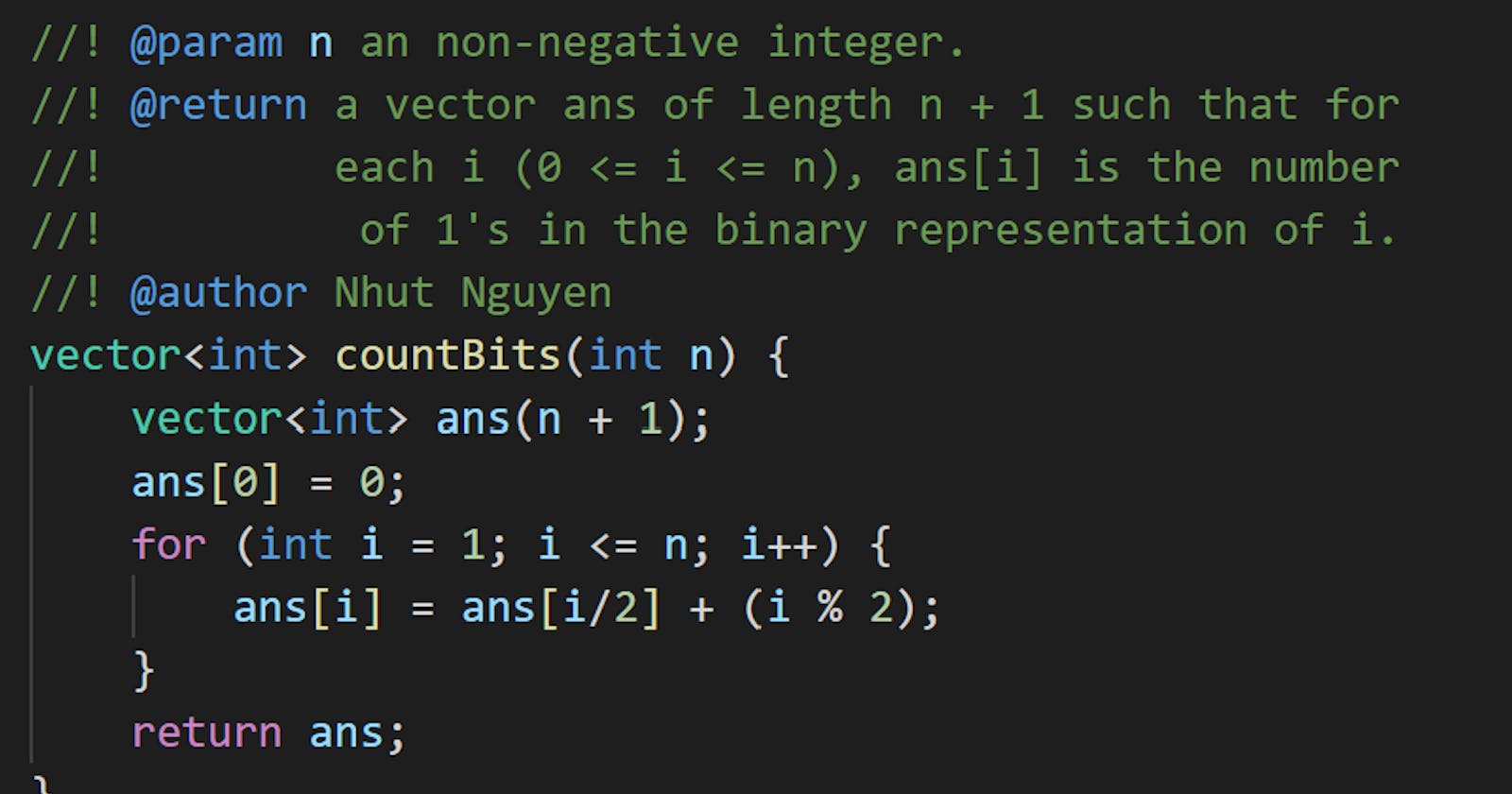Problem statement
Given an integer n, return an array ans of length n + 1 such that for each i (0 <= i <= n), ans[i] is the number of 1's in the binary representation of i.
Example 1
Input: n = 2
Output: [0,1,1]
Explanation:
0 --> 0
1 --> 1
2 --> 10
Example 2
Input: n = 5
Output: [0,1,1,2,1,2]
Explanation:
0 --> 0
1 --> 1
2 --> 10
3 --> 11
4 --> 100
5 --> 101
Constraints
0 <= n <= 10^5.
Solution 1: Count the binary representation using std::bitset
Code
#include <vector>
#include <iostream>
#include <bitset>
using namespace std;
vector<int> countBits(int n) {
vector<int> ans;
for (int i = 0; i <= n; i++) {
bitset<17> b(i); // 17 bits to make sure it can exceed 10^5
ans.push_back(b.count());
}
return ans;
}
void print(vector<int>& ans) {
cout << "[";
for (int a : ans) {
cout << a << ",";
}
cout << "]\n";
}
int main() {
auto ans = countBits(2);
print(ans);
ans = countBits(5);
print(ans);
}
Output:
[0,1,1,]
[0,1,1,2,1,2,]
Complexity
- Runtime:
O(nlogn). - Extra space:
O(1).
Solution 2: Finding the pattern
- If you append a bit
0to the binary representation of an integeri, you perform the operatori -> 2*ibut the number of bits1is unchanged. In other words,ans[2*i] = ans[i]. - If you append a bit
1to the binary representation ofi, you perform the operatori -> 2*i + 1and the number of bits1is incremented one. In other words,ans[2*i + 1] = ans[i] + 1.
Code
#include <vector>
#include <iostream>
using namespace std;
vector<int> countBits(int n) {
vector<int> ans(n + 1);
ans[0] = 0;
for (int i = 1; i <= n; i++) {
ans[i] = ans[i/2] + (i % 2);
}
return ans;
}
void print(vector<int>& ans) {
cout << "[";
for (int a : ans) {
cout << a << ",";
}
cout << "]\n";
}
int main() {
auto ans = countBits(2);
print(ans);
ans = countBits(5);
print(ans);
}
Output:
[0,1,1,]
[0,1,1,2,1,2,]
Complexity
- Runtime:
O(n). - Extra space:
O(1).
